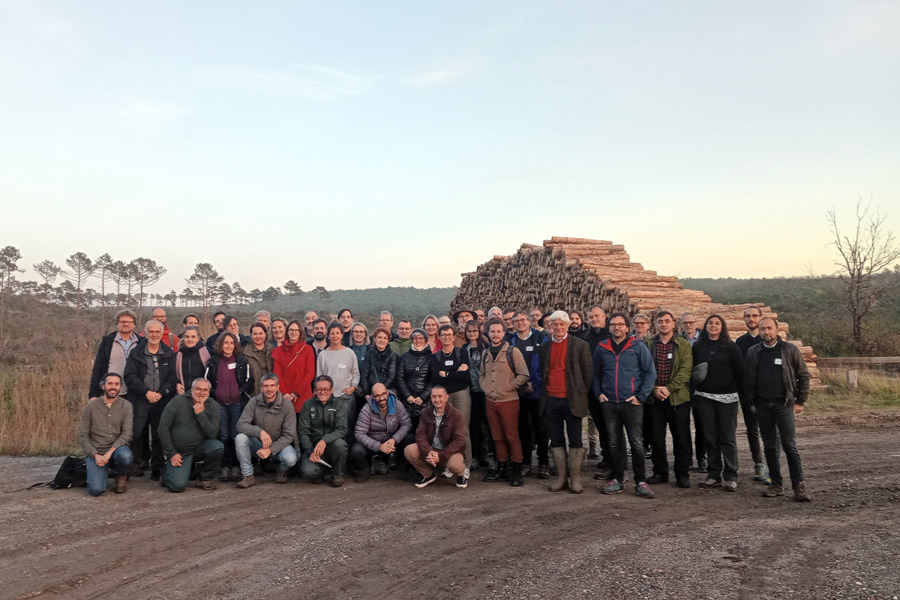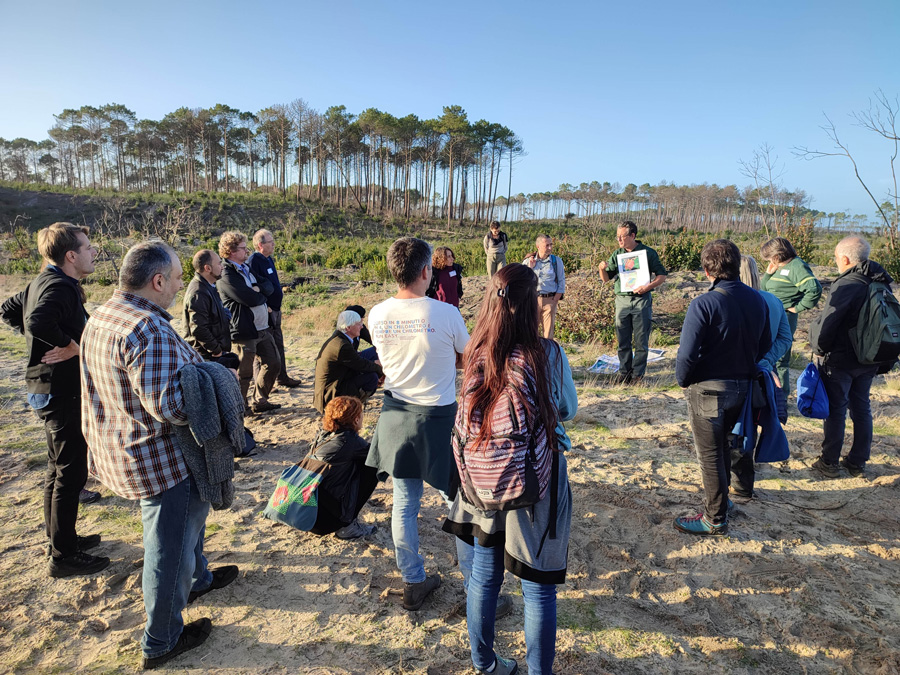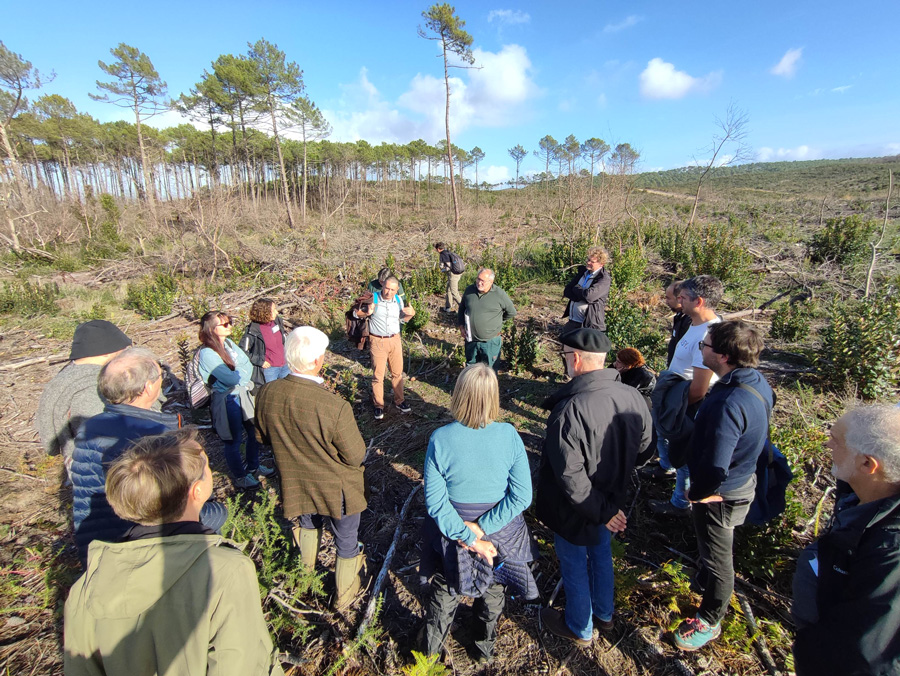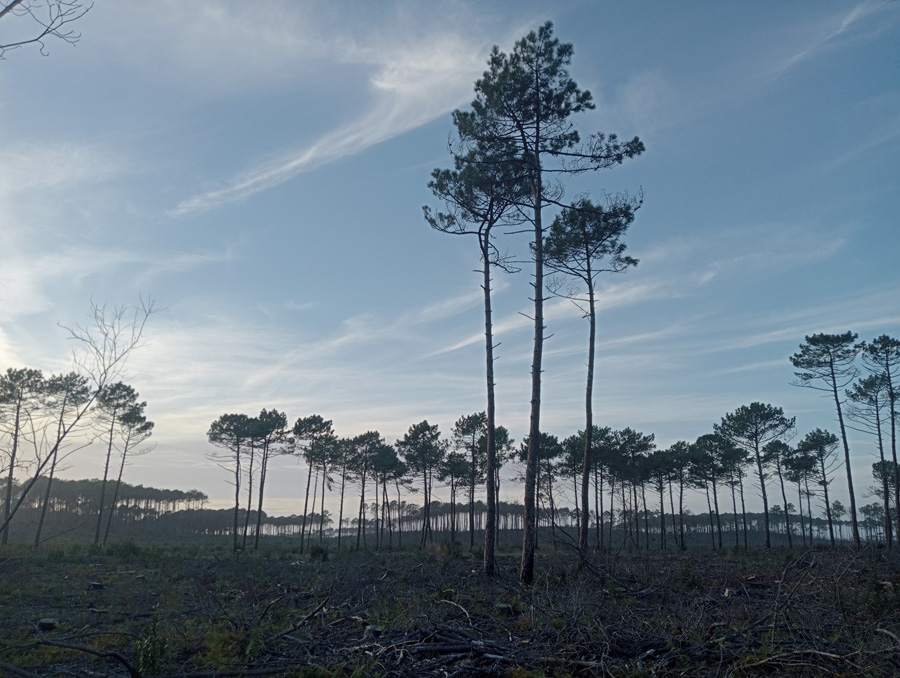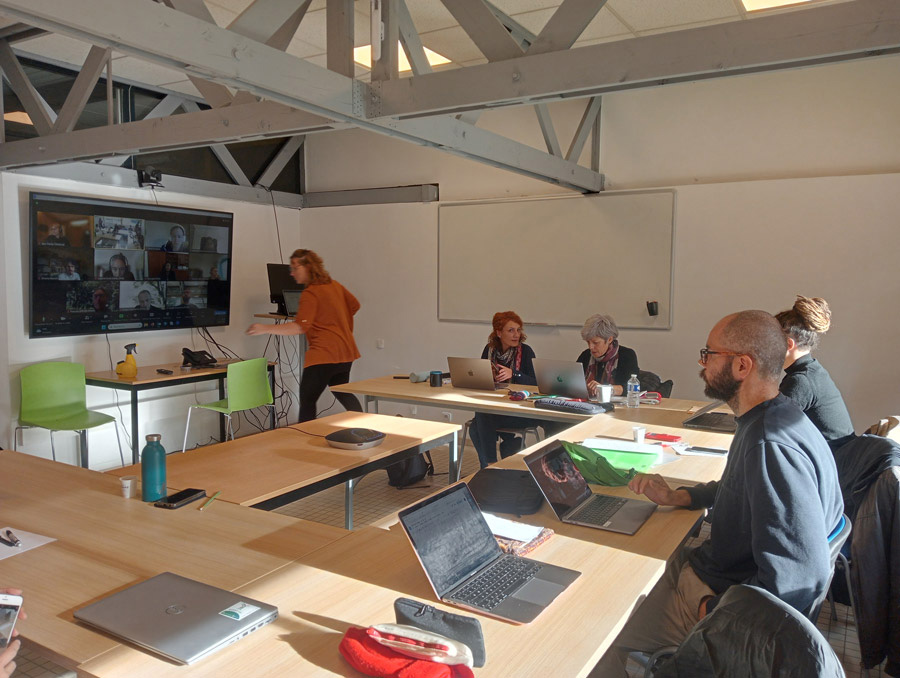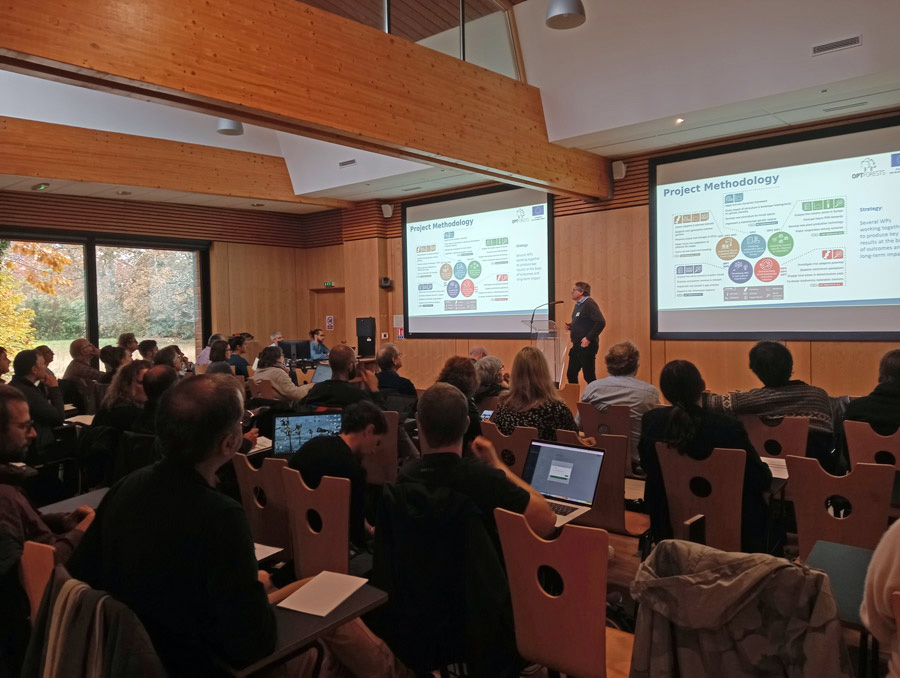Around 60 OptFORESTS project partners, as well as representatives of the European Commission and two members of the Scientific Advisory Board (Lucian Curtu, University of Transylvania in Brasov, Romania, and Elena Górriz-Mifsud, Centre of Forest Science and Technology of Catalonia, Spain) gathered for the first annual OptFORESTS meeting which took place at the INRAE station of Cestas-Pierroton, near Bordeaux in France. Between 14 and 17 November 2023, a series of discussions and presentations were organised not only to show the progress of the project in all Work Packages (WPs) so far, but also to plan the next OptFORESTS actions in the coming months.
The meeting was preceded by the FOREGEN Workshop, a joint initiative of three EU projects: SUPERB, WildE and OptFORESTS, which focused on the role of natural regeneration as an effective forest management method to restore European forests after climate change-related disturbances. FOREGEN was attended by a large representation of the OptFORESTS work package leaders, as well as the project coordinator, Dr Santiago C. González-Martínez. In addition, two post-meeting workshops were also held that were key to advancing the modelling work that will take place in WP2 and WP5, related to the production of recommendations for the use of FRM and the establishment of low-input breeding in Europe, respectively.
OptFORESTS right on track in multiple areas
The intensive meeting programme, which included plenary sessions for each WP, as well as WP and inter-WP focused working sessions, showed great progress in achieving the key results envisaged by the project. More specifically, good progress has been made in the collection of existing data and new assessments of the common gardens, in the development of growth chamber experiments to model regeneration niches, with first results already available for silver fir, and in the seed collections aimed at establishing the new network of new generation multi-species common gardens; a network that has been expanded from the 20 initially planned in the Grant Agreement to 29 thanks to the contribution of external partners with their own funding.
In addition, demogenetic modelling and studies of genotype interactions leading to genetic diversity-sensitive forest management are well advanced, as well as the collection of quantitative genetic data to be used to assess the potential for low-input breeding for various forest trees. Notably, the online survey for forest tree nurseries, translated into 24 languages and distributed to 30 countries, has so far collected information on 200 nurseries (approximately 20% of the annual production in Europe).
Finally, many other activities, in particular those related to the FOREMATIS link with EUFGIS, as well as the assessment of ecosystem services mediated by forest genetic resources (FGR), the development of new cultural trajectories, and policy and governance issues, have already developed the conceptual framework and detailed protocols needed to guide the surveys and the next OptFORESTS actions.
Overall, the gathering proved to be quite stimulating and fruitful, fostering deep conversations among partners and invited colleagues. The meeting was complemented by a scientific lecture on the role of species mixtures to increase forest resistance to pests, imparted by Dr Hervé Jactel (INRAE), a field trip hosted by ONF (the French Forest Service, which is also part of the OptFORESTS consortium) to visit some noteworthy restoration sites associated with large forest fires, and a charming gala dinner that took place in Arcachon, a picturesque town at the shores of the Atlantic Ocean.
